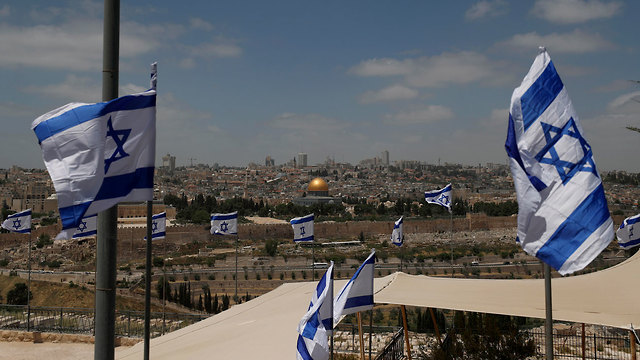Opinion: Israelis know they have someone to rely on in times of trouble, and that someone is our fellow citizen; grass roots initiatives that have developed in recent years are just as innovative as the country’s high-tech industry
As Israel celebrates its 71st year of independence, the country’s citizens appear rich, but the country itself acts like it’s poor. The level of poverty in a country is reflected in a very low public social expenditure. This includes health, education, and welfare systems, which struggle to function and meet the demands of the ever-growing population, using outdated infrastructures.
A state doesn’t just become impoverished, it’s a result of government policies that prioritizes economic independence over the social independence of Israeli citizens, which has successfully been passed on into the hands of private entities.
Reasonable private wealth has enabled those Israelis who are not particularly wealthy to pick up where the government has left off many years ago in order to create a strong network of mutual support, a phenomenon unprecedented for most developed countries. The grass roots public welfare initiatives Israel are as innovative, vibrant and multifaceted as the country’s flourishing high-tech industry, which makes us feel that in times of trouble there will be someone to rely on.

That someone is not the state, but rather our human environment – which includes friends, acquaintances, work colleagues and associates – that has all but replaced the state when it comes to public welfare.
Hitting the headlines in Israel recently was a story about Israelis who recruit themselves, their families, their friends, their own money and their efforts in order to promote various public welfare initiatives and programs. Stories of these nature allow us to take a peek at the complexity of the non-governmental and non-corporate sector in Israel.
Furthermore, Israel’s voluntary sector allowed the country to almost land successfully on the moon. The fact that SpaceIL’s Beresheet project – a prestigious and exemplary enterprise – involved dozens of private citizens who were recruited to develop and promote a project masquerading as Israel’s poster child, symbolizes our uniqueness.
From time to time – though with decreasing frequency – the voices of various groups and communities can still be heard, demanding the state urgently solves their (sometimes unique) problems. It’s the country’s job, they say, to protect its citizens the way a mother protects her offspring, and the 2011 social justice protests were a reflection of this mindset.
This Independence Day there’s no point in asking what the country can do for us – and not even what we can do for the country – but rather what we, as Israeli citizens, can do for others just like or unlike us. Go and do something for your colleagues, friends, sick, needy and poor.
If the state refuses to act, we will all try to be the state and act in its name. Who knows, maybe we’ll even succeed in finally bringing peace to the southern border. And this is the message I want you to take away from this little piece.
As reported by Ynetnews
